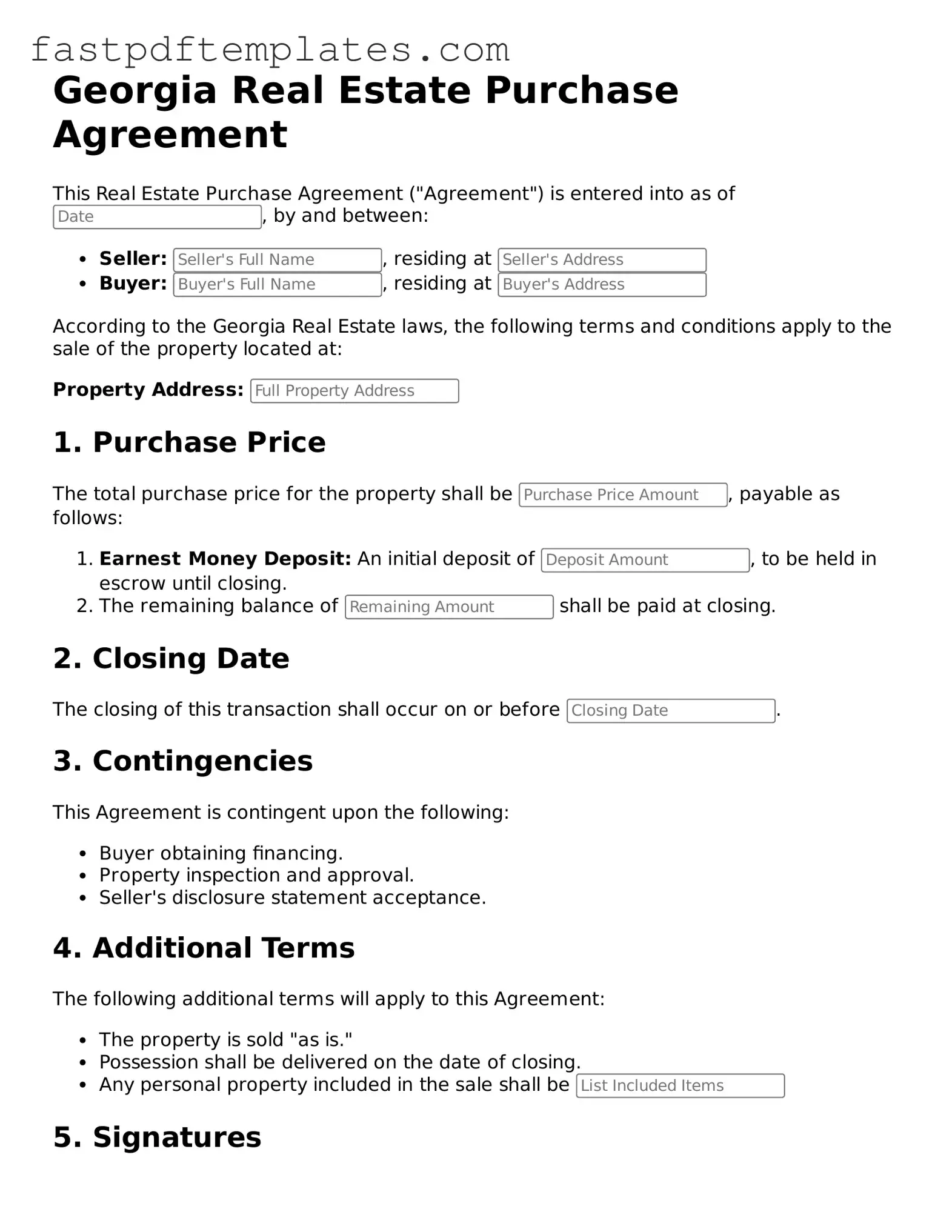Attorney-Approved Georgia Real Estate Purchase Agreement Document
The Georgia Real Estate Purchase Agreement is a legally binding document that outlines the terms and conditions of a property sale in Georgia. This form serves as a vital tool for both buyers and sellers, ensuring clarity and protection throughout the transaction process. Understanding its components can help parties navigate their real estate dealings with confidence.
Access Document

Attorney-Approved Georgia Real Estate Purchase Agreement Document
Access Document
Your form still needs completion
Complete your Real Estate Purchase Agreement online and download the final PDF.
Access Document
or
Click for PDF Form
